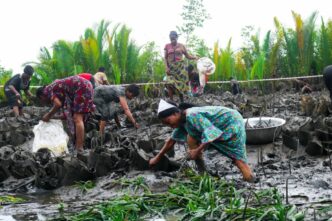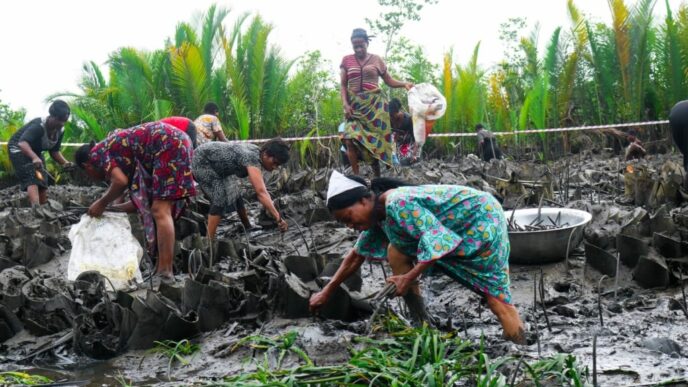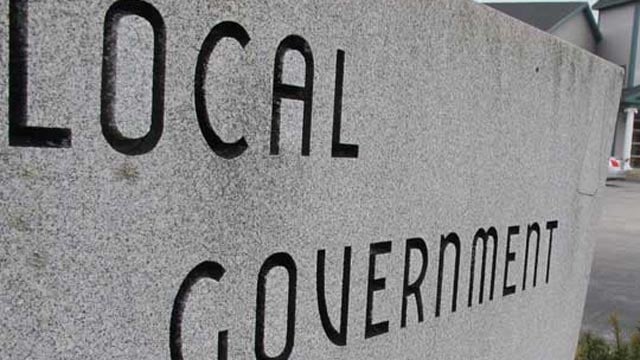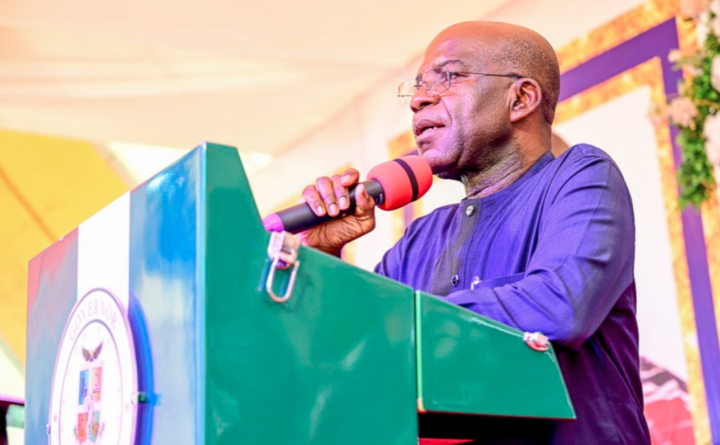BY WILAN GLOBAL
Women in Leadership Advancement Network (WILAN) Global is a Nigerian-based global organisation focused on advancing women’s leadership across all levels of political, economic, and public life.
Our vision is to inspire a shift to gender-balanced leadership across all levels of political, economic, and public life globally. WILAN’s mission is to ease access to the community, knowledge, resources, opportunities, and support women need to become effective and thriving leaders. With a firm commitment to our mission, we firmly believe that gender-balanced leadership is crucial for achieving sustainable development and building an inclusive society.
Introduction
Advertisement
Women’s economic empowerment is a game-changer for inclusive and equitable economic growth. Women in Nigeria are resilient and resourceful as economic actors, but they face persistent gender-based barriers in accessing financial services, land, education, and employment that limit their economic potential.
According to the International Finance Corporation study, 70% of women live in extreme poverty and closing gender gaps in the economy could add $229 billion to Nigeria’s GDP over the next decade. Women have demonstrated their ability to build informal and formal businesses with minimal capital, create networks to maximise resources, and balance disproportionate caregiving responsibilities.
The Women’s Economic Empowerment (WEE) Policy presents a crucial opportunity to eliminate these barriers and establish an environment where women can thrive economically, to drive national development.
Advertisement
Policy Context and Background
The WEE policy is an inclusive and well-thought-out policy designed after a 15-month consultative process with 100,000 Nigerians. The WEE policy is a blueprint for closing gender gaps in economic participation and opportunity. Some of the gender gaps identified in the Citizen’s Guide to Understanding the National Women’s Economic Empowerment Policy and Action Plan include:
- Financial exclusion: Only 44% of Nigerian women have access to financial services, compared to 56% of men, restricting their ability to save, invest, and grow businesses.
- Poverty levels: Over 70% of Nigerian women live in extreme poverty, with many relying on informal, low-paying jobs for survival.
- Agriculture and land ownership: While women contribute 70%- 80% of agricultural labour, they own only 10% of the land, limiting their ability to secure loans and expand their businesses.
- Digital divide: 34% of Nigerian women have internet access compared to 54% of men, reducing their ability to access financial services, education, and job opportunities.
- Corporate leadership gap: Women hold only 20% of board seats in listed companies, despite studies showing that gender-diverse leadership improves business performance.
- Educational disparities: While 67% of boys complete secondary school, only 53% of girls do, limiting their future employment prospects and earning potential.
- Healthcare & social access: Women have less access to quality healthcare, legal protection, and political representation, reducing their ability to participate fully in society.
In response to these challenges, the National WEE Policy and Action Plan was launched in May 2023. It provides a strategic framework for empowering women across key economic sectors.
The Economic and Social Benefits of the WEE Policy
Advertisement
The WEE policy targets five key economic sectors to drive measurable improvements in women’s economic participation:
- Women in Agriculture – Expanding access to land, financing, and market opportunities will increase female participation in agriculture from 19.6% to 30%, enhancing food security and economic stability.
- Women’s Education and Skill Development – Vocational training and financial literacy programs will help bridge the gender skills gap and improve employment prospects.
- Women in Emerging Industries – Encouraging female participation in technology, finance, and other high-growth sectors will diversify Nigeria’s economy and create millions of jobs.
- Women in Formal and Informal Employment – Strengthening workplace policies and access to childcare will increase women’s workforce participation from 55% to 65%.
- Women in Entrepreneurship – Expanding financial inclusion, offering business grants, and improving market linkages will increase the number of women-led businesses, fostering innovation and job creation.
Additionally, four cross-cutting enablers will accelerate policy implementation:
- Women’s Financial Inclusion and Literacy – Increasing female financial access from 45% to 75% will drive economic independence and business expansion.
- Digital Innovation and Access – Closing the gender digital divide will enable more women to leverage technology for education, finance, and entrepreneurship.
- Household, Workplace, and Community Support Structures – Policies supporting work-life balance and social protection will enhance women’s economic participation.
- Gender-Responsive and Data-Driven Government Processes – Implementing gender-sensitive policies and ensuring accountability will sustain long-term progress.
When fully implemented across Nigeria, the WEE policy is set to drive GDP growth over the next decade, reduce women’s extreme poverty by at least 30%, and expand female representation in executive roles and governance. Furthermore, it will strengthen women’s decision-making and innovation. It will also enhance financial stability for families, as women reinvest 90% of their income into their households and communities.
Call to Action
Advertisement
Driving Nigeria’s economic growth requires urgent action. This starts with each State domesticating and implementing the WEE Policy. However, the successful execution of the National WEE Policy and Action Plan will depend on the government, the private sector, and civil society working together to expand women’s participation in high-growth industries, strengthen social safety nets, improve childcare services, and enforce work-life balance policies.
Gender-responsive governance must be a priority, ensuring women have a seat at decision-making tables, while financial systems must be restructured to grant women greater access to capital and investment opportunities. Bold affirmative action is required to break systemic barriers and project the full economic potential of Nigerian women.
Advertisement
Women’s economic empowerment is not just about fairness, it is a national imperative. When women thrive, businesses grow, families are financially secure, and communities become more resilient. A gender-inclusive economy accelerates innovation, strengthens governance, and builds a future where Nigeria’s prosperity is shared by all.
The rise of women is the rise of Nigeria. It’s time to act.
Advertisement
Views expressed by contributors are strictly personal and not of TheCable.










